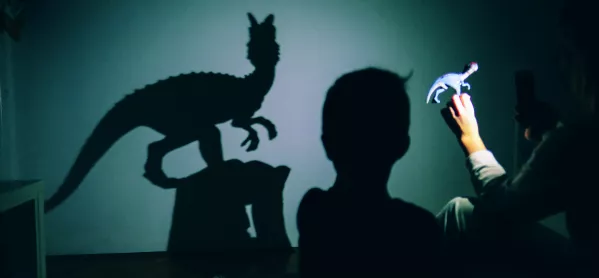- Home
- ‘The baseline test won’t work - just look at my kids’
‘The baseline test won’t work - just look at my kids’

At the age of 4, my eldest child’s idea of fun was throwing stuff. His talent for on-target chucking was both awe-inspiring and exhausting. If you had given him a pencil and told him to write something, he would have launched it across the room with a right-armed windmill manoeuvre. Sitting still at a desk was not his strong point.
I was concerned that when my budding Shane Warne started school he might struggle to stay focused on phonics. Indeed, reading and writing of any sort were a mystery right up to the end of that first year in school, when his EYFS assessment showed him to be dawdling behind in the academic subjects. He did not, despite my best efforts, show any literary promise at all. Meanwhile, several girls in his class already appeared to be writing their juvenile memoirs in fountain pen.
As it so happens, there was nothing wrong with him at all, and by around Year 2 of primary school he had become a fine student, ticking all the government boxes for his academic work.
So, how do you explain that "progress"? Of course, the school is partly responsible, after all, it spent hours teaching him stuff. But really, the fundamental reason he progressed was that, at some point between Reception and Year 2 – in the absence of any particular learning impairment – he was ready to do so. Reading and writing clicked into place and he didn’t look back.
If my son had been subject to the planned early years baseline test at age 4 – a pilot of which begins in September – what would it have told us? Probably that he struggled to sit down to actually complete the thing.
What will a baseline assessment tell us?
And if we compared the results of that to his (I presume good) Sats results in Year 6 next year, what would that tell us about his progress and the quality of his school? That the school had dragged him – using some incredible Nick Gibb™-branded cocktail of government-prescribed schemes and techniques – from somewhere in the bottom third in Reception to the very top of Year 6? Of course not. It doesn’t really tell us anything at all.
And many heads, it seems, would agree with me. A YouGov poll for campaign group More than a Score showed that 74 per cent felt it was not possible to assess four-year-olds reliably.
The absurdity of testing children this age was highlighted only this week with the decision to scrap the "self-regulation" component of the baseline test, on the basis that it is a hard thing to test. Experts have stressed that the ability to self-regulate is a much better indicator of future academic success than an early ability to count to 20, for example.
I am not a child development expert or teacher, but I do claim a degree of wisdom from rearing three children, the youngest of whom is now 4.
All have had very different personalities, preferences and rates of development in their early skills. My daughter aged 4 is better with scissors than my son of 10, for example. My middle child is a one-man comic book factory but is mystified by maths. My oldest absorbs facts and figures like an Excel spreadsheet but still struggles with his shoelaces. These are children of the same parents, in the same school, who had similar exposure to nursery education. Parents the world over will tell you a similar story.
Formally testing a few narrow parameters when children are not long out of nappies will do nothing to aid their individual education and I doubt it will – as Nick Gibb has claimed – “fairly and accurately measure how effectively schools are helping children to progress”. I doubt it will tell us much about the school or the effectiveness of its teachers.
The test will do nothing but waste teachers’ time. Time that would be better spent reading stories on the rug, firing up the mud kitchen and dispensing a decent dose of good old awe and wonder.
It will surely skew that glorious first year in school, where children are still – mercifully – permitted to pursue self-guided play and learning in a colourful environment. The majority of parents value this year as a gentle introduction to schooling for their little ones.
Instead of replacing the KS1 Sats test with the baseline test, as is planned, we should be scrapping tests at this end of school altogether. In other more educationally successful countries, kids have barely started formal schooling when we are already grilling our young on the Sats barbecue. I’m not sure we need this barbecue to take place even earlier in their school careers.
Of course, Reception teachers’ time would be better spent getting to know their pupils and learning what makes them tick. Chucking stuff, for example.
Irena Barker is a freelance writer and mother of three children of primary school age
Keep reading for just £1 per month
You've reached your limit of free articles this month. Subscribe for £1 per month for three months and get:
- Unlimited access to all Tes magazine content
- Exclusive subscriber-only stories
- Award-winning email newsletters



